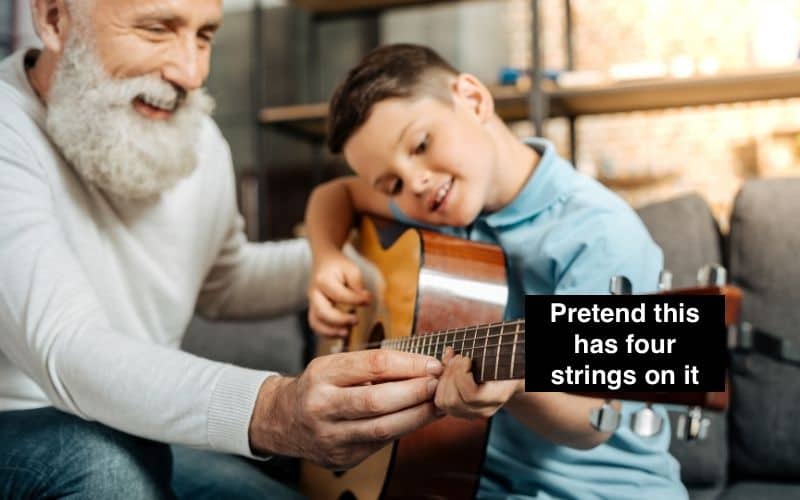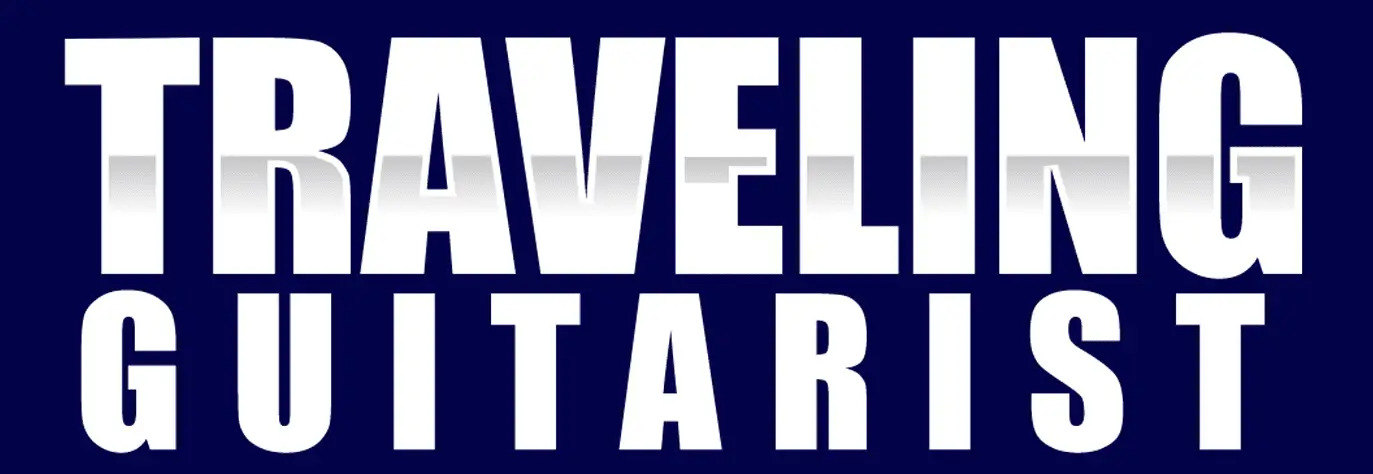It’s a common misconception that the bass isn’t very hard to learn because it only has four strings. Basic fundamentals like – 1) learning how to slap and pop and 2) how to use music theory to construct musically synchronous bass lines – can take someone years to perfect.
With that said, despite the bass guitar’s complexity not only in instrumentation but also in frequency and sound design, it’s one of the easiest to start playing if you’re looking to play along with other people.
Bass guitar is as hard to learn as any other instrument. It requires dedication and focus to learn effectively, and it can be challenging for the beginner. Mastering the instrument will take years, however, with the proper guidance and tools, it’s possible to cut your learning curve drastically.
With all that in mind, there are many approaches to learning bass and they’re not all that different from learning how to play the guitar (more on learning guitar in my other article). In this article, I’ve explained why learning the bass shouldn’t frighten you, and I’ve also broken down several ways to get better at playing bass.
The methods one person takes is typically their own journey, and they may use a combination of the approaches shown here. It’s up to the player to choose their own path that makes the most sense to them which can obviously be very different for each person.
Why Bass Guitar Isn’t That Hard to Learn Anymore

As it was noted already above, the bass guitar isn’t much harder to learn than the electric guitar. There are just a few differences that separate them, but for the most part, learning one over the other isn’t going to take more effort. If you choose to become a master at playing the bass, it’s going to take the same amount of time as it would to be a great guitarist.
Some of the reasons why learning the bass guitar isn’t hard are the same reasons why learning any skill nowadays isn’t as difficult as it used to be. For instance, the availability of online courses, YouTube videos, and general internet content has made it much easier to learn compared to even just 10-15 years ago.
1) The Availability of Online Courses and YouTube Videos

Google any subject related to the bass guitar, and you’ll likely come up with thousands if not millions of search results related to the instrument, including individual song tutorials, technique tutorials, music theory books on Amazon specifically catered to bassists.
Even just 15 years ago, you would either have to buy music books like the one I just mentioned, rely on the local library to get solid information on how to play the instrument, or you would have to take lessons from a player in your area.
Now, it’s just as simple as going on YouTube and typing in “bass guitar” or “how to learn bass guitar,” or “how to play the Seinfeld bass guitar theme.” With that said, this shouldn’t be the only way that you learn.
Furthermore, if you’re willing to pay for online courses and teachers, you can get very quality lessons from people you otherwise wouldn’t have access to. In many cases, for example, you would even be able to gain access to some of your favorite players.
I know that you can pay people like Antoine Dufour and Andy McKee, for instance, to teach you how to play their songs. These are guitarists, of course, but surely you could find the bassist’s equivalent.
With all that said, getting a good in-person teacher is going to help you learn the fastest and in the most effective manner possible (assuming you’ve chosen a good teacher). This is going to be the best way to learn the instrument.
I would argue that learning from an in-person teacher reigns superior, for sure, however, using an online teacher as well for supplemental learning, or in the case that you’re unable to take in-person lessons, will work just fine.
2) Getting a Good In-Person Teacher to Help You Avoid Common Mistakes

Assuming you take the right actions and you hire a good teacher, you can avoid years of mistakes and problems. I already told this story in my article on why learning the guitar isn’t that hard.
I got a personal trainer in 2020 and it catapulted my results in the gym almost immediately. Within 6 months, I had already broken my personal record on the squat and the deadlift.
The same rule applies to learning an instrument. A good teacher who already has worked through the problems that you have could help you save years of your life. Something that would take you a full year or even longer to figure out on your own, could be fixed in a matter of a few hours just with the right instruction.
I’ll say that again, something that would take you a full year to figure out on your own could be fixed in a matter of a few hours with proper instruction.
3) Tablature is Easier to Learn from Rather than Sheet Music

The existence of tablature is another reason why learning to play the bass guitar isn’t that hard (I have other reasons in my guitar vs bass article too) .
The bass, similar to the electric guitar, has a cornucopia of tablature available on the internet on websites like ultimate-guitar and many, many others. If you look hard enough, you’ll probably be able to find the bass tab for almost anything out there.
The same rule applies to electric guitar as well. Bass is a fretted instrument so the numerical system that indicates which fret you need to play is applicable.
You don’t need to know standard notation to learn how to play the bass guitar in the same way that you would for the piano, which is definitely a big advantage for beginners. By the way, you should learn how to read standard notation at least at some point.
4) Everyone has Access to Free DAWs like GarageBand or Reason

The accessibility of things like digital audio workstations is another reason why learning to play the bass guitar isn’t that cumbersome anymore (more on gear for basses in my guide).
It’s so easy to record yourself and listen back to what you’re doing, moreover, it’s much easier to be creative as well. You can multi-track record, layer bass over another track, use Garageband’s drummer track (my tutorial here), or you could have a player from across the world send you an electric guitar track to jam over.
Furthermore, you have access to effects, plugins, and dynamics processors just by downloading them and uploading them into the DAW. Lately, I don’t even bother using my tuner anymore because Garageband has a built-in tuner that works just fine.
And if that isn’t good enough for you, there are better tuners on the market like Blue Cat’s Hot Tuna from Plugin Boutique that will do even better. It doesn’t cost much money either.
5) Bass Guitar is Easier at the Start Due to Single-Note Structure

By “easier at the start,” I mean that because the bass guitar is often a single-note instrument, you’ll find there are a lot of bass lines out there where the bassist is just outlining the notes of the chord and providing warmth, structure, and body to the song.
The bassist won’t play chords, do slapping and popping, or any other complicated movements.
It’s a lot easier to learn how to play the bass line to “Smoke On the Water,” for instance, than it is to learn how to play the main riff on the guitar.

Even though the bass line is nothing to sneer at either. The bass line to Smoke On The Water is pretty good and worth listening to. It does a good job of solidifying the main idea of the song, especially the introduction.
6) Bass Riffs Generally Aren’t as Complex in Popular Music

Compared to electric guitar riffs, bass riffs generally don’t feature as many notes – at least in popular music.
Obviously, if we’re talking about music like Scale the Summit, Red Hot Chili Peppers, or Victor Wooten, then it’s an entirely different story, but for the most part, popular music doesn’t feature extremely sophisticated bass lines (although, nowadays, the same thing could also be said about the guitar too).
There are exceptions to this rule, especially when you consider particular genres or players, like Les Claypool from Primus, who had the most unique bass lines ever.
Songs like “Tommy The Cat” are pretty unique and they feature very interesting lines, techniques, tricks, and sounds that I’ve never heard in any other song.
Easy Ways To Learn How To Play The Bass
1) Learning Bass Guitar With An Instructor

Learning how to play bass with an instructor can fast-track your success by guiding you, one on one, through the application of music theory and also through some of the riffs from your favorite songs.
A bass instructor can help you learn faster than learning on your own and can typically help you a lot in your beginning stages by sharing their knowledge and years of experience.
A great instructor will understand precisely where you are in your journey and exactly where you need to go.
They can guide you through obstacles that you may not understand on other learning platforms, and show you possible shortcuts they have learned along their own path. Similar to guitar lessons, bass lessons with an instructor are weekly for 30 minutes to an hour.
This varies from instructor to instructor as much as the price does. A beginning instructor with fewer students might charge you a lot less than the busy instructor at your local music shop.
Regardless of which one you choose, either of them should have a deep understanding of bass and theory to make learning easy.
And, as I wrote about in my article on how many lessons guitarists need, you don’t need to stick with one mentor forever. You might even out-grow your mentor at some point.
2) Learning Bass Guitar With An Online Course

Taking online courses can be the next best thing to a one-on-one instructor. Some have online interactions that can be very valuable and help navigate you through something you don’t understand, but many do not.
You can find these types of courses advertised on social media platforms that will most likely take you to a website where you pay a monthly fee to access their content. One of the more underrated aspects of these communities is the network of people you’ll have access to. You could even start a band with some of these people.
If you choose an online course from an instructor that can also give you private lessons when you’re stuck, then the program may be great for a beginner.
Unfortunate a beginner that may not understand everything right away may struggle with a learning course that doesn’t have private instructions.
It’s best to do a little research and find the right course for you. All-in-One packages may look great from the outside, but once you open the course and start learning from it, you may get discouraged.
If you already understand some music theory, then this online approach may be right for you because you can revisit things you may have forgotten, and that should help you understand the rest.
3) Learning Bass Guitar By Ear

Learning how to play bass by ear used to be the only way you could learn how to play most music. Tablature and how-to books weren’t readily available, so most people would turn to the stereo or record player and work out the notes by ear.
It made for some incredible musicians, because the number of songs to learn was endless, and the skill learned is not easily forgotten.
Learning how to play bass by ear takes time and practice, as much as learning a new skill on the bass. It is formally known as ear training, and some people have to spend hours upon hours learning this skill.
A select few, though, have what is called Perfect Pitch. This is a genetic ability to hear notes in a way that resembles colors to the brain although it is possible to learn perfect pitch with a lot of work, especially if children are taught from a young age.
A person with relative pitch is also great at hearing a note and instantly identifying it, but they do not have perfect pitch unless they were born with it or learned at a very young age.
The easiest way to learn guitar by ear is to use apps like Anytune Pro+ where you can insert the song, slow it down, and even change the base’s pitch so that you can hear the note better—picking along at the different notes until you get the hang of the song. With time, this technique will get easier.
4) Learning Bass Guitar By Tablature

A straightforward method of learning how to play bass is learning how to read tablature. The bass has frets, and each fret can be counted out from the fret closest to the nut to the last fret that is closest to the pick-ups.
Each fret is represented by a number, and each string is read from bottom to top. When looking at any bass tablature, you’ll see E, A, D, and G. The numbers to the side match with the frets on the bass.
This method of learning, by tablature, is the easiest way to start playing and understanding the basics but can ultimately retard your understanding of music theory and how to become a great bassist.
When you reach a stage of advanced learning on your instrument, you would never look to tablature unless you had to. This is because music for bass has always been read on the bass clef of sheet music, and an advanced bassist would most likely be reading this way.
Bass tablature found on the internet is not always correct because formats like GuitarPro use user’s content to generate tabs for the website. Then it is up to the users to vote the tablature accurate or not.
This leaves a lot of work for those looking for the correct tablature, but can be a good starting point if you find a good tab to work from. With that said, you can find very accurate tablature on the internet via Guitar Pro 8, and it’s actually not uncommon for the online tabs to be better than the “official” sheet music.
5) Learning Bass Guitar At A Credited School or University

Learning to play bass from a credited school or university is always the most proficient way to learn because professors teach a tried and true curriculum.
This curriculum will not only help you master how to play bass as an instrument, but you will know a lot about music theory.
Having a bass degree can help you a lot in the music industry. When you apply for jobs at a studio, a music degree of any kind is appropriate and often appreciated. Credited schools like Musician’s Institute or Berkeley School of Music offer many music programs, and bass is one of those programs.
A credited school or university that offers a bass program will teach the student how to read music, understand music theory and play complicated compositions.
They usually veer more toward the classical approach, covering masterpieces that have been around for decades, so you’ll have to learn what they teach you instead of a one on one instructor that can teach you what you are interested in.
6) Learn Bass By Jamming with Friends

The easiest way to start playing is to learn how to tune your bass and then grab a drummer or a drum loop and start experimenting. Make sure to take note of how easy or hard for you it is at first, and keep practicing until it gets easier.
You should be aware of things like how you use your hands to sound out the notes and what kind of tone you like by messing with the tone knobs on your bass and amp. You’ll immediately start developing your musical ear.
It’s fairly easy to make a bass line on top of some drum patterns. All you need to do is listen to the drums and feel where the kick and snare are emphasized.
A bass line will appear, and if you play it over and over, you’ll get more comfortable and be able to add fills and chromatic walks that enhance your primary bass line.
No matter how you learn to play bass, it’s important to realize it takes time and dedication to master. Combining one or two of these methods will help you catapult your way into understanding bass and how to play it.
If it’s hard for you to learn by ear, you might try a different way like an online course or getting an instructor. Which ever way you choose just remember to always have fun.
YouTube Video Tutorial


 Written By :
Written By :
